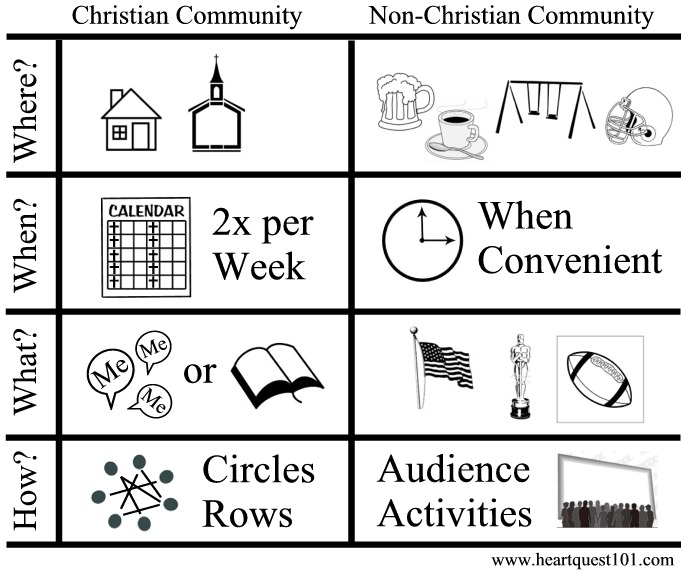On May 7 the staff got together to discuss the impact of our days of renewal, in hopes of embracing a compelling vision, or at least that we will begin the formation of a vision of “the next” for King’s Grant. Here are a few of my notes and thoughts…
If we are to be an equipping culture, we must decide if we are equipping people for a task/event or equipping them for a ministry (unleashing them for kingdom service).
Let’s remind ourselves of the working diagram for our renewal time: 
When we speak of the kingdom, we are meaning the rule and reign of Christ in the lives of our people. This is why we exist, to equip believers for the work of service (Ephesians 4:12). It is as if God has given church leaders “only one job, you have 1 job, so don’t blow it by getting distracted with so many other good and worthwhile things.”
Working Vision Statement:
We exist to extend
the love of Christ, and
His kingdom
We exist to expand – His love and kingdom
in Virginia Beach, and
to the world
We exist to equip – God’s people; for their mission of…
mending and restoring relationships
laying and establishing a foundation
preparing, training, and sending;the saints for the work of service
After this would come each individual ministry of the church, to do these things, by… (listing several ways that ministry will bring this vision into fruition). In the discipleship ministry we could say we do this by…
- Providing small group experiences
- Providing resources for spiritual growth
- Providing opportunities to serve others
- Providing equip and train opportunities to become more effective in ministry, in order to work toward the vision
We are called to make disciples, but just how does one measure that? How does one know that the goal has been reached? Perhaps by measuring church attendance, Bible and theological knowledge, prayer life, tithing, memorizing Scripture, zeal for God? Yet these look eerily similar, not to Jesus’s closest men, but to his chief opponents (the Pharisees).
On the other hand, what if we measured the progress of a disciple in less objective terms, like this:
Depending on the Holy Spirit (regeneration and dependence)
Interacting in Christian community (biblical knowledge and interdependence)
Submitting to the lordship of Christ (humility and obedience)
Communing with the Father (spiritual disciplines of prayer, devotion, worship)
Investing HIS resources (stewardship, investing in eternal matters)
Participating in acts of service (ministry to/with others and giving back)
Leading people to Christ (Christian witness in word and deed)
Expanding his kingdom (evangelism and missions)
All this to say, how can we get our people to think on a kingdom level? How do we help our people to find their calling?
On June 6, we got together and added more detail..
Mend and Restore – Gather
Into the FAITH
Into the FAMILY
Establish and Lay a Foundation – Grow
In CONNECTION
In COMMUNITY
Equip and Send – Go
By SENDING
By SERVING
This manifests itself in two ways: Personal and Communal – in a linear process of movement on this journey through life together…
- Personally (Member) — Communally (Connection, with other members)
- Personally (Ministry) — Communally (Community with whom we are connected)
- Personally (Mission) — Communally (Changing the world)
